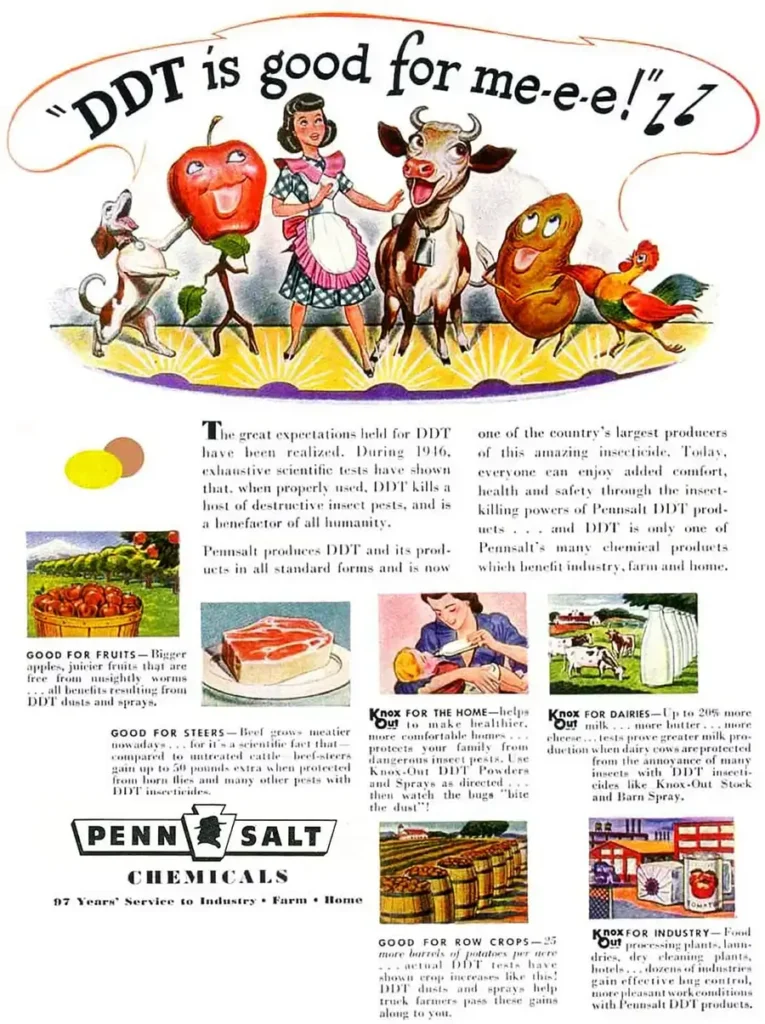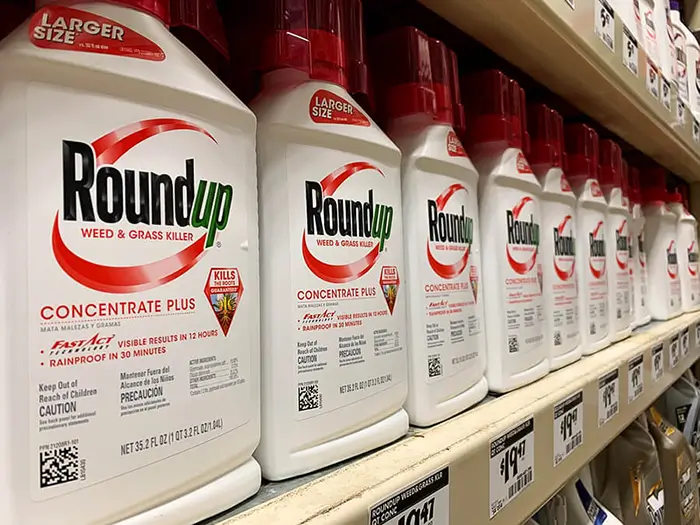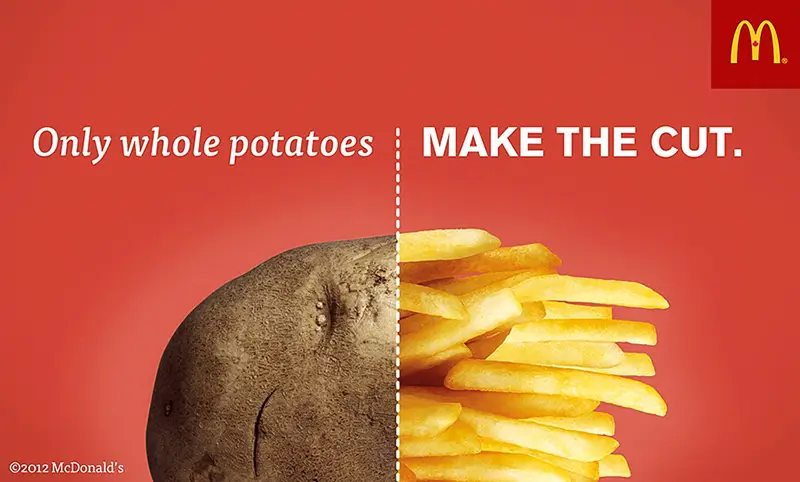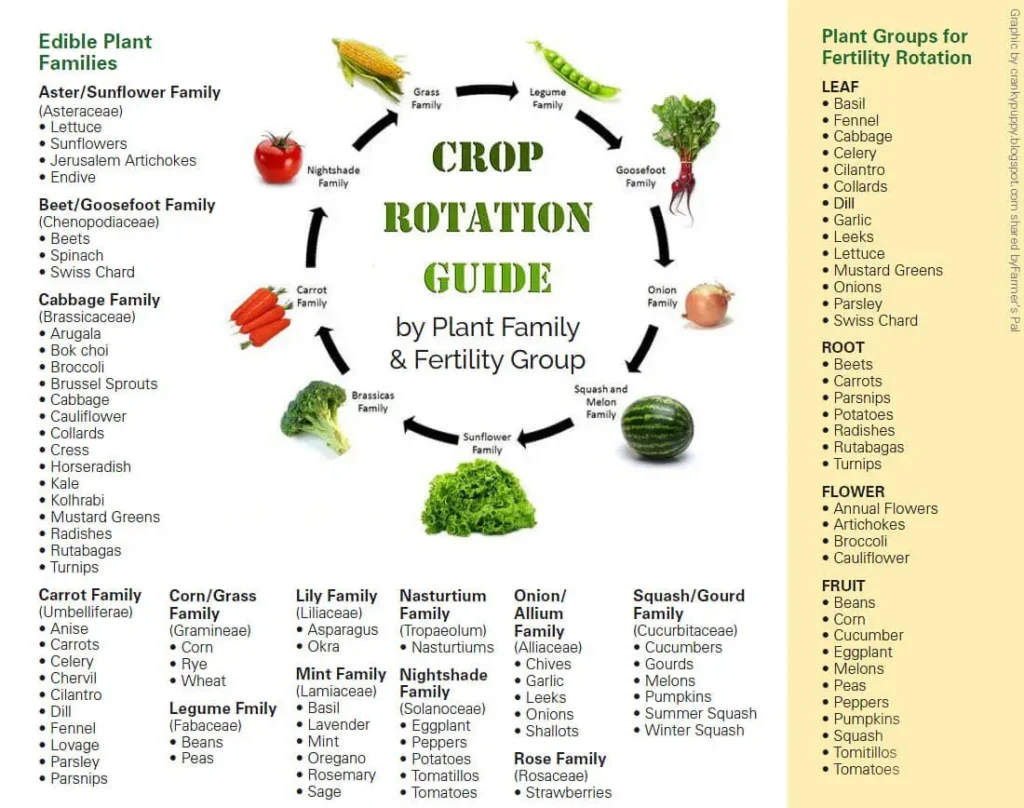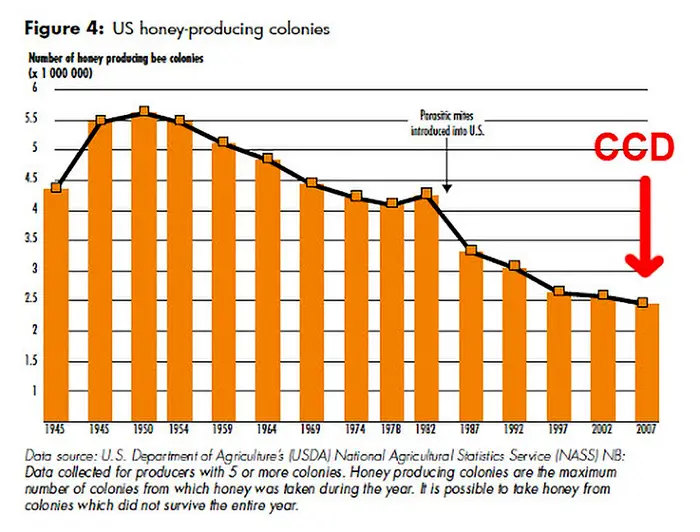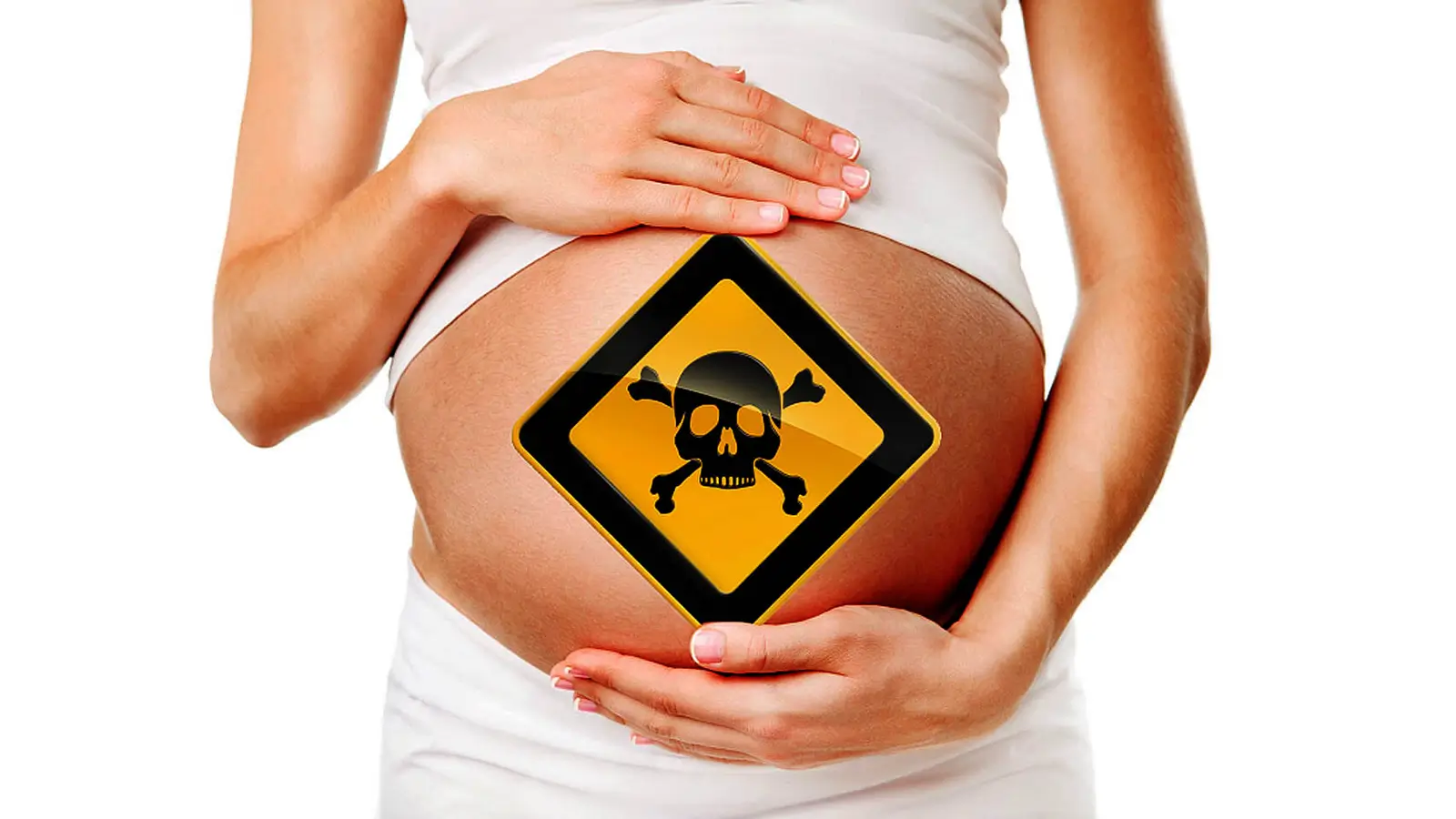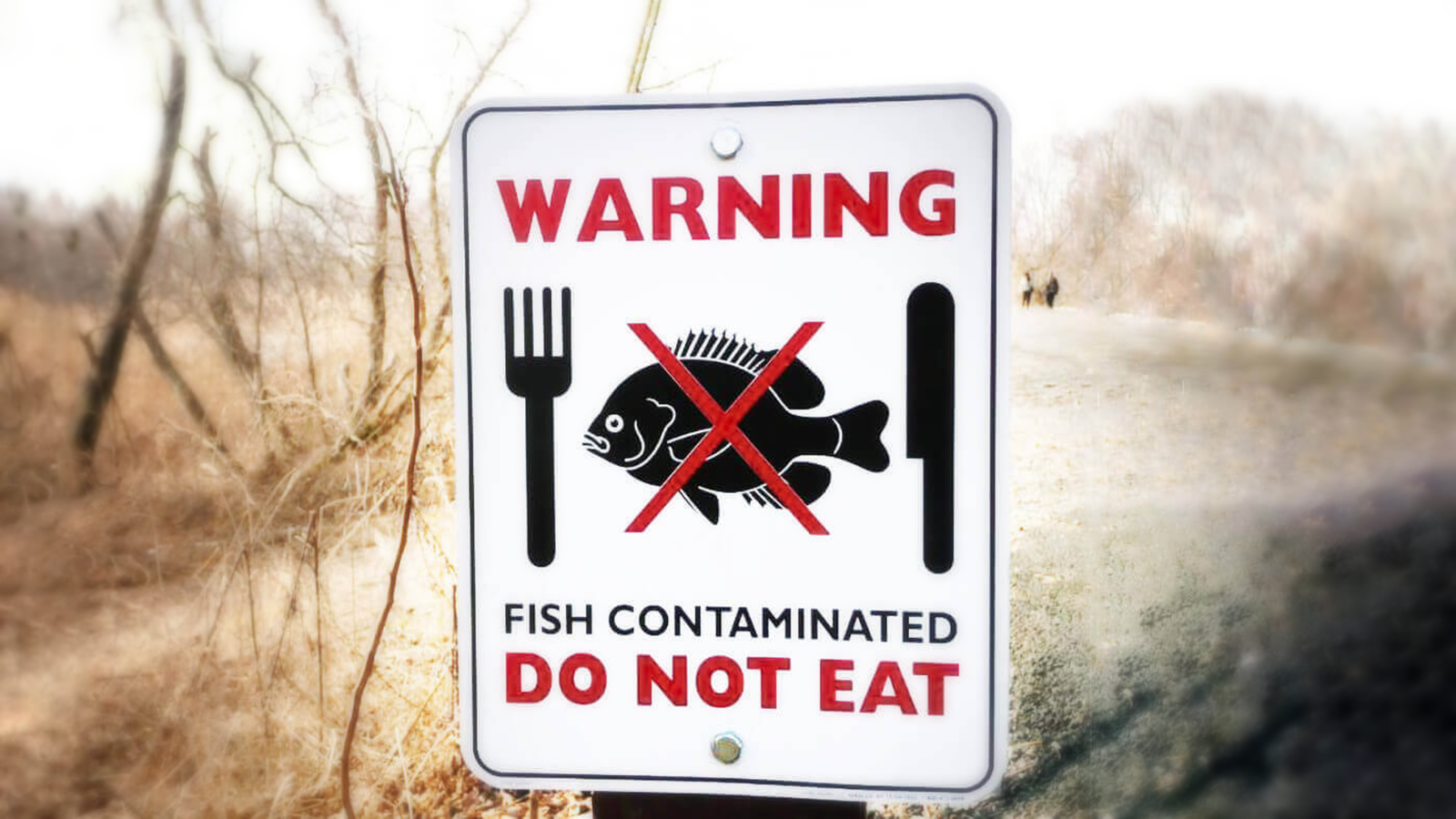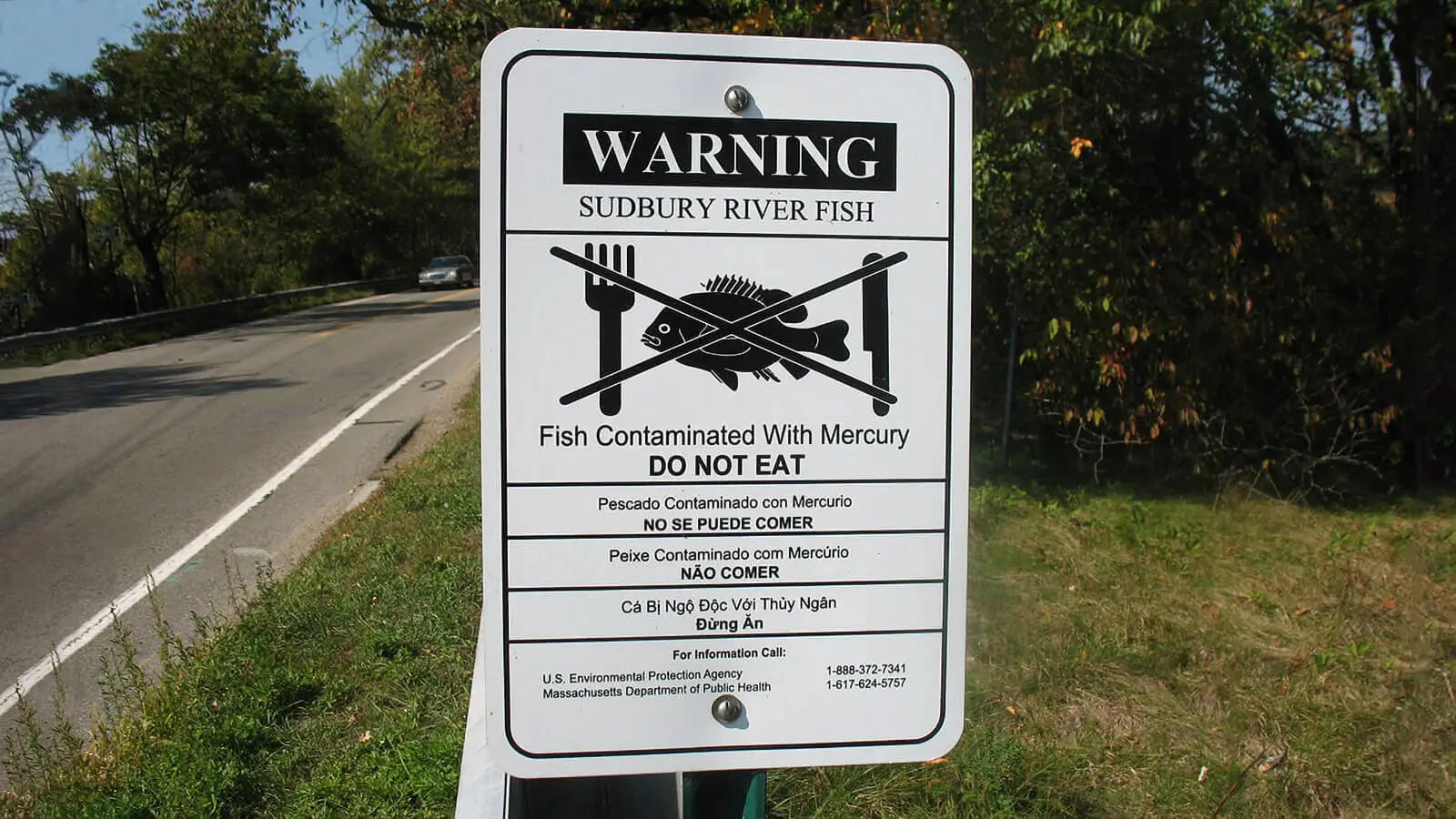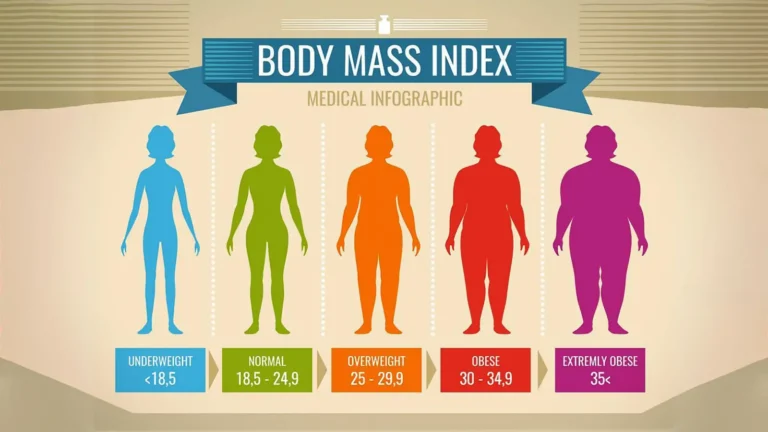Pesticides, GMO’s, and toxic overload.
Exposure to pesticides directly causes cancer, birth defects, sterility and infertility, damage to the brain and nervous system, liver, kidneys, and other organs.
Milos Pokimica
Written By: Milos Pokimica
Medically Reviewed by: Dr. Xiùying Wáng, M.D.
Updated June 9, 2023All pesticides are similar. Some are more toxic some less but all of them are toxic. There is not one single pesticide today that is health-promoting. DDT for example is now a banned substance in many parts of the world, but it was not so once upon a time. The government used to endorse the product, and the chemical industry pushed it aggressively. It remained massively supported for an extended period by the government and industry. A type of miracle substance. The diabolical weapon of modern science kills billions of insects and saves millions of humans. The final solution to malaria and other insect-carrying diseases.
Pesticides are neurotoxins for insects but not for humans. DDT in insects opens sodium ion channels in neurons, causing them to fire spontaneously, which leads to spasms and eventual death. All the bug needs to do is to walk over the treated surface. In the scientist’s mind, it was just a neurotoxin for insects. They could not consider the likelihood that it might do other stuff in the long run. A big chunk of pesticides used today is much worse than DDT.
One more reason DDT was banned is that for 30 years it was overused and insects became resistant to it. It happens in an environment when a poison is introduced.
Some bugs survive and multiply. The genetic characteristics of survivors will be more adapted against the same kind of pesticides. The pesticide used for the first time will have the most significant impact and will do more harm. However, some insects that survive will carry their genes forward. With time, forthcoming generations will be capable of withstanding its effects more and eventually becoming tolerant. Like mosquitos in South Africa. The longer time a chemical is used, the more resistant insects became. It is the same story as antibiotic-resistant strains of bacteria. When this happens, the more effective and more potent, and toxic poisons have to be used by farmers. That will repeat the cycle. New compounds are usually more expensive, so the economic cost will become higher and are also increasingly toxic. That generates a higher level of pollution and thus deteriorates the overall balance of the ecosystem even more. The high rate of reproduction of insects means that in a couple of decades they can become tolerant but what about you?
Pesticides will run off into groundwaters and streams and rivers. That will affect the biology of many species of fish, birds, mammals, and other animals in a food chain eventually ending up in your body as well.
GMO organisms are primarily created because of this so that pesticides like Roundup can be used in high dosages to kill all of these new resistant and nasty insects. We have reached the point where we have to alter genes artificially to keep pace with natural evolution.
One good example is McDonald’s French fries. In every McDonald’s restaurant in the world, the fries are made from the same potato named Russet Burbank.
This is a potato from America that’s unusually long, and it is also very difficult to grow. It has to be very long because we like those red boxes with a little bouquet of very long fries visually. So McDonald insists that all potatoes be Russet Burbank. They also insist that all chips be clear without blemishes. There is one common defect of Russet Burbank called net necrosis. Because we like fries to be clean without brown spots on them, McDonald’s won’t buy potatoes from farmers who had them. The only way to eliminate the blemishes is to eliminate the aphids. The only pesticide that can kill them is called Monitor. It is so toxic that farmers who grow these potatoes have to spray the pesticides and would not go back to the fields for five days after the spraying. They have to wait for pesticides to wash off before they can go back. When they harvest the potatoes, they have to put them in atmosphere-controlled sheds. In some cases, the size of sheds can rival football stadiums. The reason they are put into sheds in the first place is that they are not edible for six weeks. The potato has to off-gas all the chemicals in them.
In organic farming, crop rotation is useful for addressing many problems of the over usage of pesticides. Monoculture excessively depletes the soil of certain nutrients. The rotation has the purpose of rebuilding the soil. One crop that leaches the soil of one kind of nutrient is then in the next growing season replaced by another crop that doesn’t leach that specific nutrient but draws a different ratio of nutrients. In some cases, if done correctly crop rotation can even return that nutrient to the ground. Rotation in time will build biomass and fertility and structure of the soil from various root structures.
When one species is grown continuously, year after year, it will in time build up the number of pests, and by rotation, the buildup of pathogens and pests will be mitigated. However, as the human population has grown, monoculture with synthetic fertilizers is the only economically effective way to produce all of the crops we need. It is also left crops to be vulnerable to extensive attacks by pests. Today we annually use more than 5 billion pounds of pesticides across the Earth. All of those chemicals eventually end up in the soil and ocean. On top of that, these chemicals have altered the genetics of many species creating superbugs. Colorado potato beetle, for example, is resistant to more than 50 insecticides. Other bugs get caught in the crossfire.
For example, since the late 1990s, there is an unexplained and sudden reduction in the number of bees. On a global scale, there are unusually high rates of decline in honeybee colonies.
More than one-third of world crop production depends on bee pollination. The loss of biodiversity can explain it. Due to monocultures that bees cannot use for food and the widespread use of pesticides, some of them can kill them directly or indirectly, the situation is now terrible. Bees dying reflects the dysfunctional balance in nature with a dysfunctional food system and flowerless landscape. In some sections of the world, there are no bees at all. In such places, people are paid to do pollination by hand. In the US, bees have been in decline since World War 2. There were around 4.5 million beehives before the war and now the number is around 2 million hives. Food deserts are large-scale monocultures that do not provide any food to insects including bees. The farms that use to support the life of bees are now food deserts dominated by one or two species like corn or soy with no flowering plants that bees need for survival. For example, the scale of the almond monoculture is such that today 1.5 million hives or almost all of the hives in existence in the US are needed to do successful pollination. Hives are required to be transported across the US to pollinate just this one crop. They are trucked in semi loads, and after bloom almonds are flowerless landscapes with no food for bees, so they are needed to be transported to some other place to do pollination. The problem is that food production that requires bee pollination is rising annually. And then pesticides are necessary because monocultures are a feast for the pest that feeds on them. In pollen that bees collect there are at least six types of insecticides. There is one insecticide that is especially toxic for bees called neonicotinoid.
Pesticides had improved over time and become stronger and more targeted, but still, they are not natural and still pollute soil, water, wildlife, and our health too.
Exposure to these substances directly causes cancer and other tumors, leukemia, lymphoma, birth defects, infertility, other reproductive problems, stillbirth, spontaneous abortion, sterility and infertility, brain and nervous system damage, and damage to the liver, kidneys, lungs, and other body organs.
Without them, food prices will skyrocket, and a big chunk of the human population will die from starvation or mosquito-borne diseases.
References:
Passages selected from a book: Pokimica, Milos. Go Vegan? Review of Science Part 1. Kindle ed., Amazon, 2018.
Related Posts
Do you have any questions about nutrition and health?
I would love to hear from you and answer them in my next post. I appreciate your input and opinion and I look forward to hearing from you soon. I also invite you to follow us on Facebook, Instagram, and Pinterest for more diet, nutrition, and health content. You can leave a comment there and connect with other health enthusiasts, share your tips and experiences, and get support and encouragement from our team and community.
I hope that this post was informative and enjoyable for you and that you are prepared to apply the insights you learned. If you found this post helpful, please share it with your friends and family who might also benefit from it. You never know who might need some guidance and support on their health journey.
– You Might Also Like –

Learn About Nutrition
Milos Pokimica is a doctor of natural medicine, clinical nutritionist, medical health and nutrition writer, and nutritional science advisor. Author of the book series Go Vegan? Review of Science, he also operates the natural health website GoVeganWay.com
Medical Disclaimer
GoVeganWay.com brings you reviews of the latest nutrition and health-related research. The information provided represents the personal opinion of the author and is not intended nor implied to be a substitute for professional medical advice, diagnosis, or treatment. The information provided is for informational purposes only and is not intended to serve as a substitute for the consultation, diagnosis, and/or medical treatment of a qualified physician or healthcare provider.NEVER DISREGARD PROFESSIONAL MEDICAL ADVICE OR DELAY SEEKING MEDICAL TREATMENT BECAUSE OF SOMETHING YOU HAVE READ ON OR ACCESSED THROUGH GoVeganWay.com
NEVER APPLY ANY LIFESTYLE CHANGES OR ANY CHANGES AT ALL AS A CONSEQUENCE OF SOMETHING YOU HAVE READ IN GoVeganWay.com BEFORE CONSULTING LICENCED MEDICAL PRACTITIONER.
In the event of a medical emergency, call a doctor or 911 immediately. GoVeganWay.com does not recommend or endorse any specific groups, organizations, tests, physicians, products, procedures, opinions, or other information that may be mentioned inside.
Editor Picks –
Milos Pokimica is a health and nutrition writer and nutritional science advisor. Author of the book series Go Vegan? Review of Science, he also operates the natural health website GoVeganWay.com
Latest Articles –
Top Health News — ScienceDaily
- The overlooked nutrition risk of Ozempic and Wegovyon February 4, 2026
Popular weight-loss drugs like Ozempic and Wegovy can dramatically curb appetite, but experts warn many users are flying blind when it comes to nutrition. New research suggests people taking these medications may not be getting enough guidance on protein, vitamins, and overall diet quality, increasing the risk of muscle loss and nutrient deficiencies.
- A 25-year study found an unexpected link between cheese and dementiaon February 4, 2026
A massive Swedish study tracking nearly 28,000 people for 25 years found an unexpected link between full-fat dairy and brain health. Among adults without a genetic risk for Alzheimer’s, eating more full-fat cheese was associated with a noticeably lower risk of developing the disease, while higher cream intake was tied to reduced dementia risk overall. The findings challenge decades of low-fat dietary advice but come with important caveats.
- MIT’s new brain tool could finally explain consciousnesson February 4, 2026
Scientists still don’t know how the brain turns physical activity into thoughts, feelings, and awareness—but a powerful new tool may help crack the mystery. Researchers at MIT are exploring transcranial focused ultrasound, a noninvasive technology that can precisely stimulate deep regions of the brain that were previously off-limits. In a new “roadmap” paper, they explain how this method could finally let scientists test cause-and-effect in consciousness research, not just observe […]
- Why heart disease risk in type 2 diabetes looks different for men and womenon February 4, 2026
Scientists are digging into why heart disease risk in type 2 diabetes differs between men and women—and sex hormones may be part of the story. In a large Johns Hopkins study, men with higher testosterone had lower heart disease risk, while rising estradiol levels were linked to higher risk. These hormone effects were not seen in women. The results point toward more personalized approaches to heart disease prevention in diabetes.
- Sound machines might be making your sleep worseon February 4, 2026
Sound machines may not be the sleep saviors many believe. Researchers found that pink noise significantly reduced REM sleep, while simple earplugs did a better job protecting deep, restorative sleep from traffic noise. When pink noise was combined with outside noise, sleep quality dropped even further. The results suggest that popular “sleep sounds” could be doing more harm than good—particularly for kids.
- This unexpected plant discovery could change how drugs are madeon February 3, 2026
Plants make chemical weapons to protect themselves, and many of these compounds have become vital to human medicine. Researchers found that one powerful plant chemical is produced using a gene that looks surprisingly bacterial. This suggests plants reuse microbial tools to invent new chemistry. The insight could help scientists discover new drugs and produce them more sustainably.
- A hidden cellular process may drive aging and diseaseon February 3, 2026
As we age, our cells don’t just wear down—they reorganize. Researchers found that cells actively remodel a key structure called the endoplasmic reticulum, reducing protein-producing regions while preserving fat-related ones. This process, driven by ER-phagy, is tied to lifespan and healthy aging. Because these changes happen early, they could help trigger later disease—or offer a chance to stop it.
PubMed, #vegan-diet –
- Diet type and the oral microbiomeon February 2, 2026
CONCLUSION: The diet-oral microbiome-systemic inflammation axis is bidirectional and clinically relevant. Understanding both direct ecological regulation and indirect metabolic effects is essential to support precision nutrition strategies aimed at maintaining oral microbial balance and systemic inflammatory risk mitigation.
- Consensus document on healthy lifestyleson January 22, 2026
Proteins are a group of macronutrients that are vital to our lives, as they perform various functions, including structural, defensive and catalytic. An intake of 1.0-1.2 g/kg/body weight per day would be sufficient to meet our needs. Carbohydrate requirements constitute 50 % of the total caloric value and should be obtained mainly in the form of complex carbohydrates. In addition, a daily intake of both soluble and insoluble fiber is necessary. Regular consumption of extra virgin olive oil […]
- Vitamin B12 and D status in long-term vegetarians: Impact of diet duration and subtypes in Beijing, Chinaon January 21, 2026
CONCLUSIONS: This study reveals a dual challenge among Beijing long-term vegetarians: vitamin B12 deficiency was strongly associated with the degree of exclusion of animal products from the diet (veganism), while vitamin D deficiency was highly prevalent and worsened with longer diet duration. The near-universal vitamin D deficiency observed in this study suggests that, in the Beijing context, the risk may extend beyond dietary choice, potentially reflecting regional environmental factors;…
- Nutritional evaluation of duty meals provided to riot police forces in Germanyon January 13, 2026
Background: The primary role of the German riot police is maintaining internal security. Due to challenging working conditions, riot police forces face an elevated risk of various diseases. During duty, forces are provided with meals. A balanced diet can reduce the risk of some of these diseases and contribute to health-promoting working conditions. Aim: First evaluation of the nutritional quality of duty meals in Germany based on German Nutrition Society recommendations (DGE). Methods: In…
- Iodineon January 1, 2006
Iodine is an essential trace nutrient for all infants that is a normal component of breastmilk. Infant requirements are estimated to be 15 mcg/kg daily in full-term infants and 30 mcg/kg daily in preterm infants.[1] Breastmilk iodine concentration correlates well with maternal urinary iodine concentration and may be a useful index of iodine sufficiency in infants under 2 years of age, but there is no clear agreement on a value that indicates iodine sufficiency, and may not correlate with […]
Random Posts –
Featured Posts –
Latest from PubMed, #plant-based diet –
- From paddy soil to dining table: biological biofortification of rice with zincby Lei Huang on February 4, 2026
One-third of paddy soils are globally deficient in zinc (Zn) and 40% of Zn loss in the procession from brown rice to polished rice, which results in the global issue of hidden hunger, e.g., the micronutrient deficiencies in the rice-based population of developing countries. In the recent decades, biofortification of cereal food crops with Zn has emerged as a promising solution. Herein, we comprehensively reviewed the entire process of Zn in paddy soil to human diet, including the regulatory…
- Molecular Characterization of Tobacco Necrosis Virus A Variants Identified in Sugarbeet Rootsby Alyssa Flobinus on February 3, 2026
Sugarbeet provides an important source of sucrose; a stable, environmentally safe, and low-cost staple in the human diet. Viral diseases arising in sugarbeet ultimately impact sugar content, which translates to financial losses for growers. To manage diseases and prevent such losses from occurring, it is essential to characterize viruses responsible for disease. Recently, our laboratory identified a tobacco necrosis virus A variant named Beta vulgaris alphanecrovirus 1 (BvANV-1) in sugarbeet…
- Nutrition in early life interacts with genetic risk to influence preadult behaviour in the Raine Studyby Lars Meinertz Byg on February 3, 2026
CONCLUSIONS: Nutrition in early life and psychiatric genetic risk may interact to determine lasting child behaviour. Contrary to our hypothesis, we find dietary benefits in individuals with lower ADHD PGS, necessitating replication. We also highlight the possibility of including genetics in early nutrition intervention trials for causal inference.
- Effect of the gut microbiota on insect reproduction: mechanisms and biotechnological prospectsby Dilawar Abbas on February 2, 2026
The insect gut microbiota functions as a multifunctional symbiotic system that plays a central role in host reproduction. Through the production of bioactive metabolites, gut microbes interact with host hormonal pathways, immune signaling, and molecular regulatory networks, thereby shaping reproductive physiology and fitness. This review summarizes recent advances in understanding how gut microbiota regulate insect reproduction. Accumulating evidence demonstrates that microbial metabolites…
- Rationale and design of a parallel randomised trial of a plant-based intensive lifestyle intervention for diabetes remission: The REmission of diabetes using a PlAnt-based weight loss InteRvention…by Brighid McKay on February 2, 2026
CONCLUSIONS: This trial will provide high-quality clinical evidence on the use of plant-based ILIs to address the epidemics of obesity and diabetes to inform public health policies and programs in Canada and beyond.
- Diet type and the oral microbiomeby Daniel Betancur on February 2, 2026
CONCLUSION: The diet-oral microbiome-systemic inflammation axis is bidirectional and clinically relevant. Understanding both direct ecological regulation and indirect metabolic effects is essential to support precision nutrition strategies aimed at maintaining oral microbial balance and systemic inflammatory risk mitigation.
